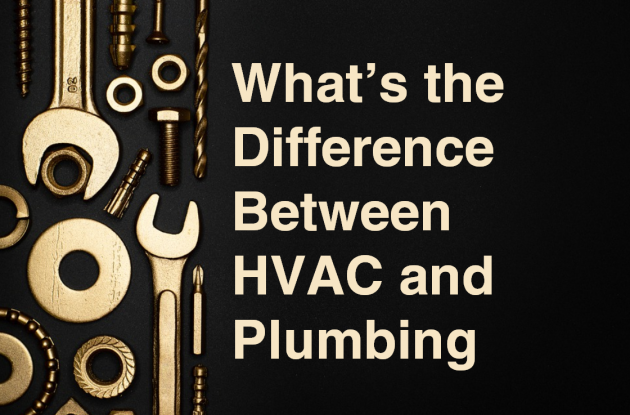Pipe Line Velocities vs. Fluid - velocity in pipe
watts fg-12-1/2
While Samtec, Inc. has used reasonable efforts to ensure the model’s accuracy, Samtec provides the model(s) “AS IS” and does not guarantee or warrant that it is completely accurate and/or that the products depicted are the most recent version(s). By downloading these files, you agree that the use of these files and their content IS AT YOUR OWN RISK as these models were developed using nominal values for physical dimensions and material properties with specific grounding and boundary conditions. Actual in-circuit performance can vary significantly from simulated results. All parameters should be validated by the customer’s own technical experts. NO WARRANTIES, EXPRESSED OR IMPLIED OR OF ANY KIND WHATSOEVER ARE PROVIDED.
An HVAC system improves the indoor comfort levels at times of the year when the weather turns cold or hot. They draw fresh air into the spaces, add or remove heat and distribute that air throughout the home or business. Many people use the term HVAC and air conditioning or AC as if it’s the exact same thing, but this is not strictly true. Although air conditioning is a part of most HVAC systems, they do not include gas furnaces, heat pumps, and other heating systems. Many people have a separate heating and air conditioning system because they tend to wear out at different times. But, there are significant performance and energy efficiency advantages if matched systems are installed. If your heating and/or AC system is starting to lose efficiency or the repairs are becoming more frequent, contact your local HVAC specialist for more details. In many cases, it makes better financial sense to replace the air conditioning and heating systems at the same time.
Mifab Floor Sink
HVAC systems have a number of connected components that rely on each other to work efficiently. These are complex systems with electrical, electronic, and moving mechanical parts. HVAC specialists within the field do exist to deal with installations, heat pump repairs, energy use analysis, duct cleaning, and more. But, they all have a common foundation and training in HVAC systems to work on residential and commercial equipment. An HVAC technician will understand the piping and wiring and components in the system.
Both trades have on-the-job training periods at similar lengths and take around 8,000 hours to reach journeyman status. To put this into some perspective around 3-5 years of apprenticeship will be required and the exact completion time will vary depending on the hours worked each week. The licensing requirements vary a great deal from state to state and these are typically lower for an HVAC technician.
Watts Floor Sink grate

This part can only be purchased in increments of .... To purchase your desired part and quantity, please select from the different packaging options below:
wattsfs-730

Most HVAC technicians are unlikely to have a specialization and they carry out a wide range of work, including diagnostics, maintenance, repair, compliance, installations, and more. Good problem solving abilities are required to troubleshoot problems quickly within the building code requirements.
Both trades require strict education requirements, but as you might expect the coursework is very different. A person obtaining a certificate to work on HVAC systems will need to fully understand the following: air conditioning, electrical concepts, heating systems, duct systems, understanding blueprints, air and water concepts, soldering and welding, plumbing codes, and more. Most of this coursework is hands-on training and good practical training is necessary to work as an HVAC specialist or plumber. It takes longer to train HVAC technicians because they need to understand electrical and plumbing concepts thoroughly.
NEITHER SAMTEC, INC. NOR ANY PARTY INVOLVED IN CREATING, PRODUCING, OR DELIVERING THESE MODELS SHALL BE LIABLE TO YOU OR ANY OTHER PERSON FOR ANY GENERAL, SPECIAL, DIRECT, INCIDENTAL, CONSEQUENTIAL, INDIRECT, OR PUNITIVE DAMAGES OF ANY CHARACTER ARISING OUT OF YOUR ACCESS, USE AND/OR INABILITY TO USE THESE MODELS OR ANY ERRORS OR OMISSIONS IN THEIR CONTENT.
watts fs-710
The HVAC specialist is more focused in their responsibilities when a direct comparison to plumbing is made. An HVAC technician will only work on jobs that are related to the heating and cooling system of a home or business. HVAC is an acronym for Heating, Ventilation, and Air Conditioning. As such, an HVAC specialist can install new systems to control the indoor climate, maintain those systems and make any repairs that are required. Most HVAC problems would not be considered to be emergencies unless the weather is very hot or cold. An HVAC technician can also help at an early stage of a new system installation with a complex load calculation. This is based on a number of factors, including airflow patterns, insulation levels, square footage, building orientation, and more. Carefully matching the HVAC system to the area where it will be installed is crucial to optimize the performance and energy efficiency. Poorly matched equipment is prone to a number of problems that can damage the components and drive up the energy bills.
Watts FS-740
A professional plumber is often called to a home or business to unclog a drain or to handle a plumbing emergency. But, they can work on appliances and fixtures connected to the water systems. A plumber is a natural choice when you need an installation, such as toilets, sinks, and bathtubs. Many plumbing companies carry out inspections to ensure that systems are up to code and they can maintain the pipes and fixtures. If you need a pipe repair, a new faucet, drain cleaning, and other services, a plumber is the best option. Finally, most modern plumbers have a 24/7 emergency number to call if you have a major pipe burst or other immediate problem that you cannot handle without professional help.
watts fs-780
Please Login to see customer specific pricing. Or you may directly contact support. You don't have an account? Create one
If you need an HVAC technician to work on your home or business system, contact your local heating and cooling specialist today.
This may seem like a dumb question, but when you think about it, there is a significant amount of crossover between HVAC and plumbing systems. The basic answer to the question may be that an HVAC technician works on HVAC systems and the same goes for a professional plumber. But, as we will show in this article the answer is a little more complex, and understanding this topic will help you to make informed decisions.
As you can see, there are clear differences between professional HVAC technicians and plumbers. But, you can find professionals that understand plumbing and HVAC systems. This can be useful if you only want to deal with one company or a specific contractor that you trust. The most important thing to remember before you hire anyone to work on your plumbing or HVAC systems is to choose a professional. Hiring a local “handyman” or attempting a DIY repair is often a bad choice and it may cost more in the medium to long term. The professional that you choose needs to be licensed and bonded to ensure that they comply with local and state regulations. Your plumbing and HVAC systems are complex, they are expensive, and protecting them makes good sense.
2D view may not be representative of the configured product. Please see 3D preview or CAD download for actual representation.




 8615510865705
8615510865705 
 8615510865705
8615510865705